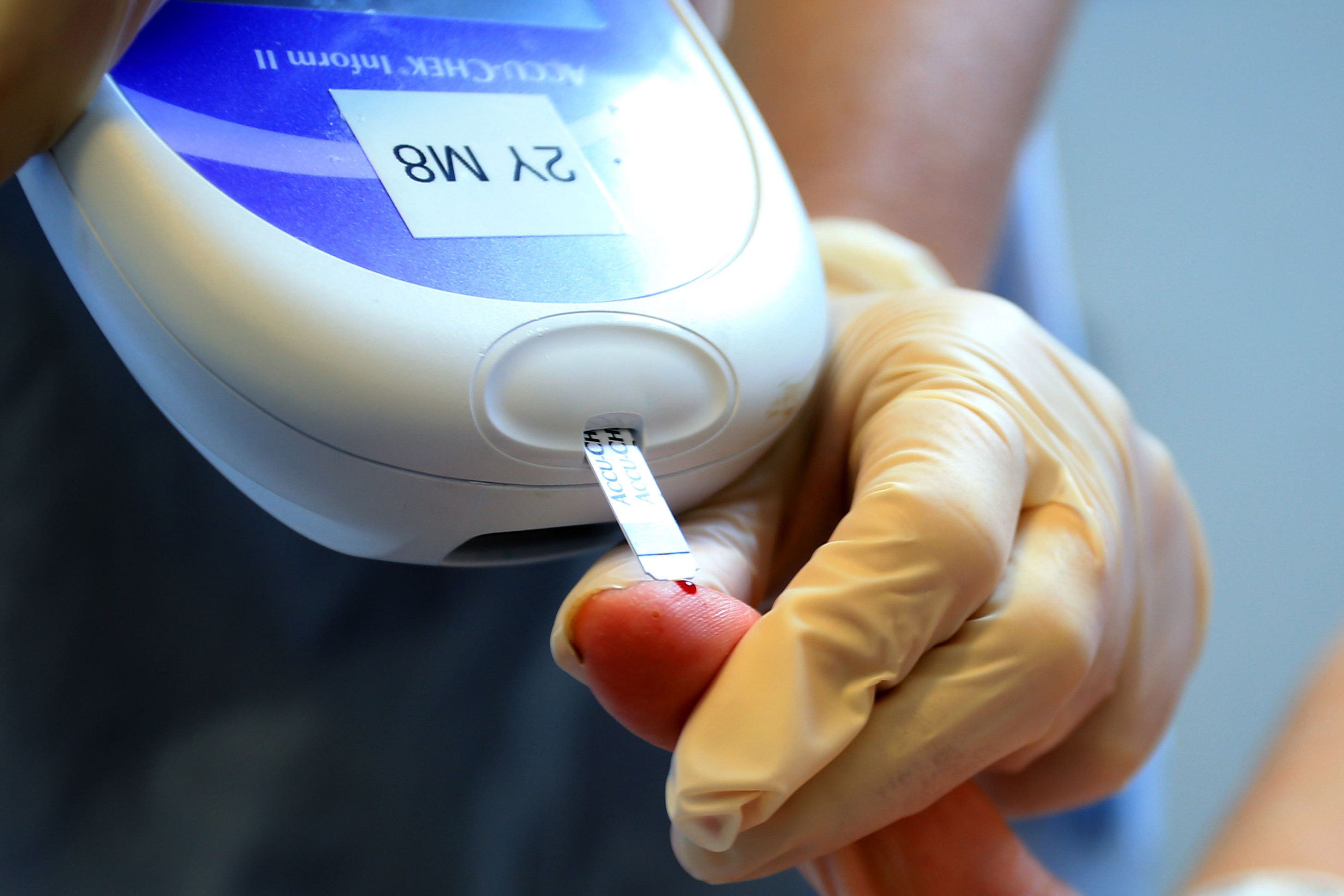Early blood sugar control for type 2 diabetes ‘can lead to fewer deaths’
Researchers say their findings strengthen the case for identifying people with type 2 diabetes at the earliest opportunity.

Your support helps us to tell the story
From reproductive rights to climate change to Big Tech, The Independent is on the ground when the story is developing. Whether it's investigating the financials of Elon Musk's pro-Trump PAC or producing our latest documentary, 'The A Word', which shines a light on the American women fighting for reproductive rights, we know how important it is to parse out the facts from the messaging.
At such a critical moment in US history, we need reporters on the ground. Your donation allows us to keep sending journalists to speak to both sides of the story.
The Independent is trusted by Americans across the entire political spectrum. And unlike many other quality news outlets, we choose not to lock Americans out of our reporting and analysis with paywalls. We believe quality journalism should be available to everyone, paid for by those who can afford it.
Your support makes all the difference.Treating type 2 diabetes patients as early as possible by controlling blood sugar with insulin and drugs can prolong life and reduce the risk of future complications such as heart attacks, kidney failure and vision loss, according to long-running research.
Scientists from the Universities of Oxford and Edinburgh analysed data spanning more than four decades from the UK Prospective Diabetes Study (UKPDS) – one of the longest type 2 diabetes clinical trials.
The findings showed controlling blood glucose early, with either insulin injections or tablets that stimulate cells to make more insulin such as sulfonylureas, led to 10% fewer deaths, 17% fewer heart attacks and 26% fewer diabetic complications, the researchers said.
Meanwhile, using metformin, a drug which helps the insulin the body produces work better, led to 31% fewer heart attacks and 20% fewer deaths.
Professor Rury Holman, the founding director of the University of Oxford Diabetes Trials Unit and chief investigator of the UKPDS, said: “These remarkable findings emphasise the critical importance of detecting and treating type 2 diabetes intensively at the earliest possible opportunity.
“People may have type 2 diabetes for several years before being diagnosed as they may have few symptoms until their blood sugars become substantially elevated.”
These remarkable findings emphasise the critical importance of detecting and treating type 2 diabetes intensively at the earliest possible opportunity
The UKPDS trial first began in 1977, where newly-diagnosed type 2 diabetes patients were assigned to either intensive or conventional blood glucose control strategy.
The intensive strategy involved using sulfonylurea or insulin therapy, or metformin therapy, to control blood glucose while the standard method involved making changes to diet.
Findings showed that compared with diet, controlling blood glucose with sulfonylurea or insulin, or with metformin, showed a lifelong reduced risk of early death and heart attack.
Guidelines were later changed worldwide to recommend these intensive therapies for everyone with type 2 diabetes.
Professor Amanda Adler, director of the Diabetes Trial Unit, said: “This shows that treating type 2 diabetes early and thoroughly is crucial.
“Playing catch-up with blood glucose control is not sufficient.”
Professor Philip Clarke, director of the University of Oxford Health Economics Research Centre, said: “A major life-time benefit is the increased life-expectancy in those allocated to intensive blood glucose control.
“The reduced rate of many diabetes-related complications will have a positive impact on overall quality of life.”
The follow-up of the UK Prospective Diabetes Study was presented at the 67th Japan Diabetes Society meeting in Tokyo, Japan and published in The Lancet.